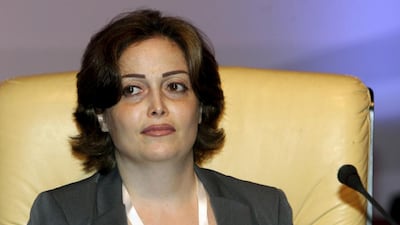An agreement between the Syrian and Iranian oppositions presents an opportunity to turn the tables on Iran in Syria.
In Paris last month, the exiled National Council of Resistance of Iran (NCRI) and the Syrian opposition movement, the Independent National Coalition of Syrian Revolutionary and Opposition Forces, cemented a relationship built in the past four years and created a plan for the battle against the Iranian regime.
The NCRI, established in 1981, is a political coalition of five Iranian opposition organisations representing all Iranian ethnic groups as a parliament in exile.
The two movements have already started a high level of coordination and collaboration to reach their twin targets: getting rid of the Assad regime as well as the Iranian presence in Syria.
The alliance presents an opportunity for the Gulf countries to increase pressure on the Iranian regime, which has been promoting instability in the region.
One of the main objectives of the alliance is to raise awareness in Iran about the increased numbers of Iranian soldiers being drafted to fight in Syria.
The war in Syria initially had popular support from many Iranians after a call to arms from the supreme leader, Ayatollah Khamenei. However, that support has been declining following major losses as Iranian soldiers died protecting the regime of Bashar Al Assad.
Syrian opposition member Suheir Al Atassi has described the partnership with NCRI as necessary: “We need to know our enemy and no one would know better how the clerical regime works, operates and strategises than the Iranian resistance,” she said.
What makes the NCRI valuable is that, over the past 35 years, it has employed a network of operatives within Iran collecting intelligence. It has been a fierce antagonist to the clerical establishment since 1981.
Its intelligence shows an Iranian presence exceeding 70,000 soldiers in Syria. NCRI documents from within Iran’s Revolutionary Guards show the surge started in February because of the deadlock in Aleppo.
Engagement with the NCRI and access to its intelligence resources could provide Saudi Arabia and other Gulf countries with more leverage to help tip the balance towards the Syrian opposition in negotiations, as well as facilitate a better flow of weapons to the Free Syrian Army.
One example of the NCRI’s network within Iran was its revelation in 2008 of two nuclear weapon development centres – countering US intelligence reports saying that Iran had halted its nuclear weapons programme in 2003.
The Gulf countries could also engage more proactively in resisting Iranian expansion in Iraq, Lebanon and Yemen.
A recognition of the NCRI and Syrian opposition alliance would have to be political as well as logistical.
Politically, the Gulf Cooperation Council has not engaged with the Iranian opposition because their largest member group, The People’s Mojahedin of Iran or the Mojahedin-e-Khalq, was once designated as a terrorist organisation by the European Union, the United States and Canada.
However, after a seven-year legal battle in European and American courts, it was dropped from that list and granted a protected persons designation in 2012.
Political engagement with the NCRI would represents a major boost for the opposition movements in Iran and Syria, and give them a stronger voice at the negotiating table in Geneva that is currently monopolised by the US and Russia. This hegemony exercised by Russia and the US has become a competition of interests by two powers that are looking to exert their control over the world using the Syrian cause as a card in their hands, according to Ms Al Atassi.
Gulf engagement with the NCRI would set the cornerstone for a relationship with the Iranian opposition to counter Iranian influence in the future beyond the Syrian conflict.
The Iranian regime is in an unenviable position. Mr Khamenei needs to keep the momentum up in Syria despite losses of up to 40 senior commanders in field operations and a large number of soldiers.
The economic pressures due to the drop in oil prices have been compounded by the hesitance of foreign investors to commit to projects in the country.
The Syrian opposition has said it does not see any grounds to hold further negotiations due to the escalation of operations in Syria by Iran and Russia.
Therefore, it might be time for the Gulf countries to make use of the resources presented by this unlikely alliance of the Syrian and Iranian oppositions to turn the tables on Iran.
Awad Mustafa is a defence and political journalist in Dubai and the Middle East bureau chief for Defense News
On Twitter: @awadz

